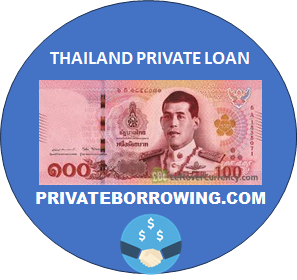
What is in Thailand a credit card for foreigne non-resident ?
In Thailand credit card for a foreigner non-resident is defined as a payment card issued by a Thai financial institution to an foreign individual who does not hold Thai residency status which makes obtaining a credit card more challenging, as issuers place significant emphasis on risk assessment and the borrower’s ability to repay while living abroad.
The role of a credit card for foreign non-residents in Thailand is to facilitate convenient local transactions, while Thailand is a highly cash-oriented society, but urban areas, hotels, online services, and international merchants increasingly rely on card payments.
For a foreigner who spends extended time in Thailand without formal residency, a local credit card can help avoid foreign exchange fees, enable online purchases with Thai businesses, and provide financial flexibility without needing to rely solely on international cards.
Can I get in Thailand a credit card as foreigner and non-resident ?
Yes for foreigners who are resident, probably no as non-resident. 👇
✅ Credit Cards in Thailand for Foreigners
1. Resident vs. Non-Resident
- Foreign residents (expats) with a valid work permit, long-term visa, and proof of income in Thailand can usually apply for a Thai credit card. Banks often require:
- Work permit valid for at least 1 year.
- Monthly income (typically from THB 30,000 – THB 100,000, depending on the bank and card type).
- Local Thai bank account with salary credited.
- Non-residents (tourists or short-term visitors) generally cannot get a Thai credit card. Thai banks view short-term foreigners as high risk because they lack stable income in Thailand, no long-term visa, and no strong credit history.
2. Possible Alternatives for Non-Residents
If you’re a non-resident foreigner in Thailand, you usually won’t qualify for a standard Thai-issued credit card. But you still have options:
- International Credit Cards: Use cards from your home country (Visa, MasterCard, Amex) – widely accepted in Thailand.
- Prepaid Travel Cards: Available from international providers (Wise, Revolut, YouTrip) and can be topped up in multiple currencies, including THB.
- Secured Credit Cards: Some Thai banks may issue a secured credit card if you open a fixed-deposit account (e.g., deposit THB 50,000–100,000 as collateral). This is rare for non-residents but sometimes possible.
- Virtual Cards / Fintech Apps: Digital cards from fintechs like Wise or Revolut can be used for online purchases and ATM withdrawals in Thailand.
3. Thai Bank Practices
- Bangkok Bank, Kasikornbank (KBank), SCB (Siam Commercial Bank), Krungsri, and Citi Thailand: Usually require residency, a work permit, and income proof.
- AEON Thailand: Sometimes easier, but still requires local income and residency.
- Secured cards: Some banks (Bangkok Bank, Krungsri) have historically issued secured credit cards against a term deposit, even to some foreigners.
4. Summary
- As a foreigner non-resident, you cannot normally get a Thai-issued credit card.
- Your best practical options are:
- Use your home-country credit card in Thailand.
- Open a multi-currency prepaid/travel card (like Wise or Revolut).
- Ask about secured credit cards at Thai banks if you plan to deposit funds locally.
Which Thai credit card companies issue cards for foreigner and for non-residents ?
Here’s a refined and well-sourced list of Thai banks and card issuers that typically provide credit cards to foreigners (non-residents or expats)—without specifically naming individual card products:
Primary Issuers of Credit Cards for Foreigners
- Siam Commercial Bank (SCB) – Actively issues credit cards to expats with the proper documentation.
- Kasikornbank (KBank) – Known to provide cards to foreign residents, often requiring proof of income and employment.
- Krungsri (Bank of Ayudhya) – Expats have successfully obtained credit cards here, including unsecured ones with strong credit stories.
- Krungthai Card (KTC) – Offers options suitable for foreigners, though exact criteria may vary.
- UOB Thailand – Offers credit cards to foreigners, generally with higher income requirements.
- American Express (Thailand) – Accepts well-documented foreign applicants who meet income and residency criteria.
- AEON Thailand – Known for being expat-friendly in certain cases.
Withdrawn or Limited Issuers
- Bangkok Bank – While widely used by foreigners for basic banking, does not generally issue unsecured credit cards to expats. They do, however, offer secured credit card options, where a fixed deposit is required as collateral.
Application Essentials for Expat Credit Cards
To be considered for a credit card, foreigners typically must provide:
- Valid passport and work permit (preferably valid for at least six months)
- Proof of steady income (e.g., salary slips for 3–6 months, often with thresholds like 50,000 THB/month)
- Bank statements from a Thai account showing income deposits and stability
- In lieu of standard approval, some banks will accept a secured model, where a deposit of 100,000–200,000 THB in a fixed account serves as collateral for the credit limit